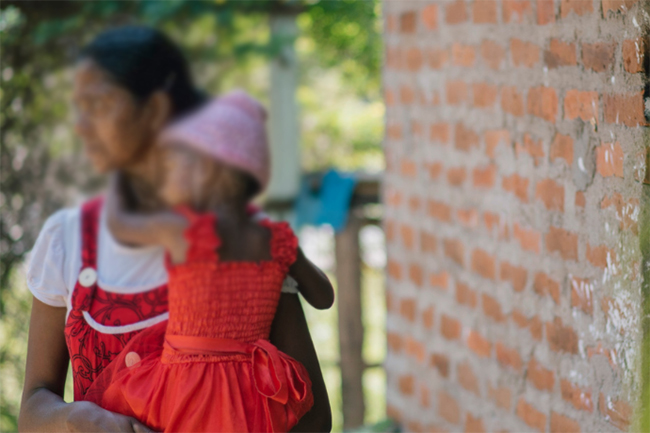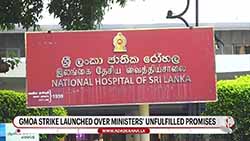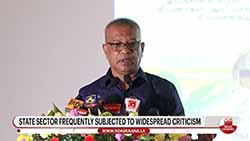UN, Australia announce joint effort in Mannar to address gender-based violence
December 7, 2020 12:53 pm
The United Nations in Sri Lanka and the Australian High Commission have announced a new joint effort to empower communities in the Mannar District to prevent sexual and gender-based violence (SGBV) against women and girls.
The programme, launched on 1st September 2020, will address the systemic and transformative changes needed to ensure families and communities support non-violence and gender-equitable relationships and for children to uphold gender-equitable attitudes, the UN in Sri Lanka said in a statement published today (07).
A multipronged approach to empower women will look at engaging them in income-generating activities and improve their status within the family. UN Sri Lanka efforts will also be focused on giving women and girls access to survivor-centred services for response and prevention of SGBV, especially in the aftermath of COVID-19.
Women and girls have been disproportionally impacted by the COVID-19 pandemic, highlighting social, political and economic vulnerabilities that expose women to violence. The AUD 1,000,000 (USD 670,691) programme will be implemented by UNFPA, UNICEF and UN Women over two years (2020 – 2022).
“Australia is committed to support Sri Lanka’s response to COVID-19 and has been quick to respond to the Sri Lankan Government’s requests for support and to the needs of communities. We have partnered with UN agencies and local partners to identify priorities and coordinate our response. Our gender-responsive COVID-19 efforts seek to end violence against women and girls and support women’s economic empowerment”, acting Australian High Commissioner to Sri Lanka Amanda Jewell said.
Speaking on the joint UN efforts, the UN Sri Lanka Resident Coordinator Hanaa Singer said, “Studies indicate that 26 per cent of men and 38 per cent of women believe there are circumstances when it is permissible for a man to hit a woman*. Our programme will seek to address these gender inequalities and discriminatory social norms towards women and girls. The consequences of these harmful attitudes have been compounded by COVID-19 and will continue to impact women and girls disproportionately to men and boys, and affect women’s resilience in mitigating the consequences of the outbreak. Therefore, interventions will address the need to rebuild communities that are equitable and just.”
Regarding the detrimental effect that the COVID-19 pandemic is having in terms of domestic violence, the UNFPA Sri Lanka Country Representative Ritsu Nacken said, “Due to COVID-19 lockdown measures, we have seen and heard an increase in the number of calls made to the helplines from women and girls seeking help from domestic violence. Furthermore, with health systems stretched in responding to the crisis, women’s shelters are also reaching capacity. As the pandemic continues, this number is likely to grow with multiple impacts on women’s mental health and wellbeing, their sexual and reproductive health and reproductive rights, and their ability to participate in the recovery of this crisis.
“While COVID-19 has put a great strain on families, even before the pandemic many children where directly experiencing or witnessing violence abuse and neglect, including at home. We know for a fact that this violence can and does have long-term physical and physiological impacts for the children involved, their communities, and the country as a whole. That’s why this work is so essential. UNICEF will do everything in our power to continue to address violence against children during and beyond COVID-19, so that every girl and boy can grow and live in safety, and reach their full potential,” UNICEF Sri Lanka Representative Tim Sutton said.
The UN Women Sri Lanka Country Focal Point Ramaaya Salgado, added, “Women are disproportionately affected by the pandemic, often having to carry a double burden of caring for their families, while attending to other responsibilities (professional or otherwise). Further, lockdown measures leading to confinement at homes has been detrimental for survivors of domestic violence, as they are unable to access support through regular channels. UN Women believes that this project’s timely focus on socio-economic skills development is an effective prevention measure against violence faced by women and girls, as it would enable women to become resilient and break away from harmful cycles of violence.”
The programme will seek to understand the drivers of violence against women in the Mannar District and support women’s shelters to ensure they are accessible to women and persons with disabilities during lockdowns. Efforts will also be made to ensure women are empowered to exercise their choices and participate in employment opportunities that promote their financial independence. Further programme activities will also promote systemic and transformative changes, for instance by hosting educational programmes that equip children and adolescents with tools to be gender-sensitive citizens.












